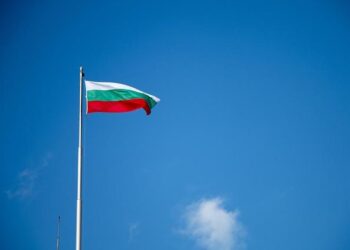The International Monetary Fund’s Managing Director Kristalina Georgieva announced that, effective January 1, Bulgaria will join the Eurozone decision-making table with full rights. This significant development marks a major milestone for Bulgaria as it integrates more deeply into the European Union’s economic framework. The move is expected to enhance Bulgaria’s influence over euro area policies and strengthen its role within the broader EU financial architecture, signaling a new chapter in the country’s economic and monetary future.
Bulgaria Secures Full Voting Rights in Eurozone From January Highlighting Its Growing Influence in European Financial Policy
Bulgaria’s entry into the Eurozone’s core decision-making bodies marks a pivotal shift in its role within European financial dynamics. With full voting rights effective from January 1, the country joins a select group of nations spearheading economic policy direction across the continent. This move not only symbolizes Bulgaria’s successful economic alignment with Eurozone standards but also enhances its ability to influence critical decisions on monetary policy, fiscal stability, and regulatory frameworks.
Key implications of this development include:
- Enhanced participation in European Central Bank policy meetings
- Greater leverage in shaping EU economic recovery strategies
- Access to new financial instruments and support mechanisms within the Eurozone
- Strengthened investor confidence through elevated country risk profile
| Aspect | Impact |
|---|---|
| Monetary Policy | Active vote on interest rates and liquidity measures |
| Fiscal Governance | Influence on EU budgetary rules enforcement |
| Market Perception | Improved credit ratings and investment inflows |
Georgieva Emphasizes Bulgaria’s Role in Strengthening Eurozone Stability and Economic Integration
Kristalina Georgieva, Managing Director of the International Monetary Fund, highlighted Bulgaria’s pivotal entrance to the Eurozone decision-making forums beginning January 1. This milestone not only marks a significant economic integration achievement for Bulgaria but also strengthens the collective stability of the Eurozone, offering a fresh perspective from a new member state. Georgieva emphasized the importance of Bulgaria’s full rights participation, which will enable the country to contribute actively to policy formation and financial governance at the highest levels.
In her remarks, Georgieva underlined several key benefits Bulgaria brings to the Eurozone framework, including:
- Enhanced regional economic cooperation – fostering greater connectivity among Balkan economies.
- Diversified economic perspectives – contributing to more robust and inclusive decision-making processes.
- Strengthened financial oversight – reinforcing mechanisms to safeguard the Eurozone against future shocks.
| Eurozone Member | Joining Year | IMF Role Status |
|---|---|---|
| Germany | 1999 | Founding Member |
| Bulgaria | 2024 | Full Participatory Rights |
| Spain | 1999 | Active Member |
IMF Urges Bulgaria to Continue Structural Reforms for Sustainable Growth and Enhanced Monetary Coordination
International Monetary Fund Managing Director Kristalina Georgieva welcomed Bulgaria’s entry into the Eurozone decision-making process starting January 1, highlighting the country’s critical role in shaping euro area policies. She emphasized that Bulgaria’s full participation comes at a pivotal moment when the IMF stresses the importance of continued structural reforms to secure sustainable economic growth. Georgieva pointed out that reforms in governance, judicial efficiency, and labor market flexibility remain essential to bolster investor confidence and to fully leverage the benefits of Eurozone membership.
Georgieva also underscored the necessity for enhanced monetary coordination between Bulgaria and Eurozone institutions. This cooperation is expected to facilitate smoother integration into the common currency framework, enabling Bulgaria to better respond to economic fluctuations and shocks. Key areas highlighted for collaborative focus include:
- Strengthening fiscal discipline aligned with Eurozone stability criteria
- Enhancing financial sector supervision and banking resilience
- Improving data transparency and compliance with EU standards
- Advancing digital innovation in monetary policy implementation
| Indicator | Pre-Eurozone | Post-Integration Target (2025) |
|---|---|---|
| GDP Growth Rate | 3.5% | 4.0% |
| Unemployment Rate | 6.1% | 5.0% |
| Public Debt to GDP | 24% | 20% |
| Inflation Rate | 2.8% | 2.0% |
Final Thoughts
As Bulgaria officially joins the Eurozone decision-making table on January 1, the move marks a significant milestone in the country’s economic integration within the European Union. IMF Managing Director Kristalina Georgieva emphasized the importance of Bulgaria’s full participation in shaping Eurozone policies, underscoring the potential benefits for both the Bulgarian economy and the broader region. This development not only strengthens Bulgaria’s role in European financial governance but also signals a deeper commitment to economic stability and cooperation within the Euro area.















